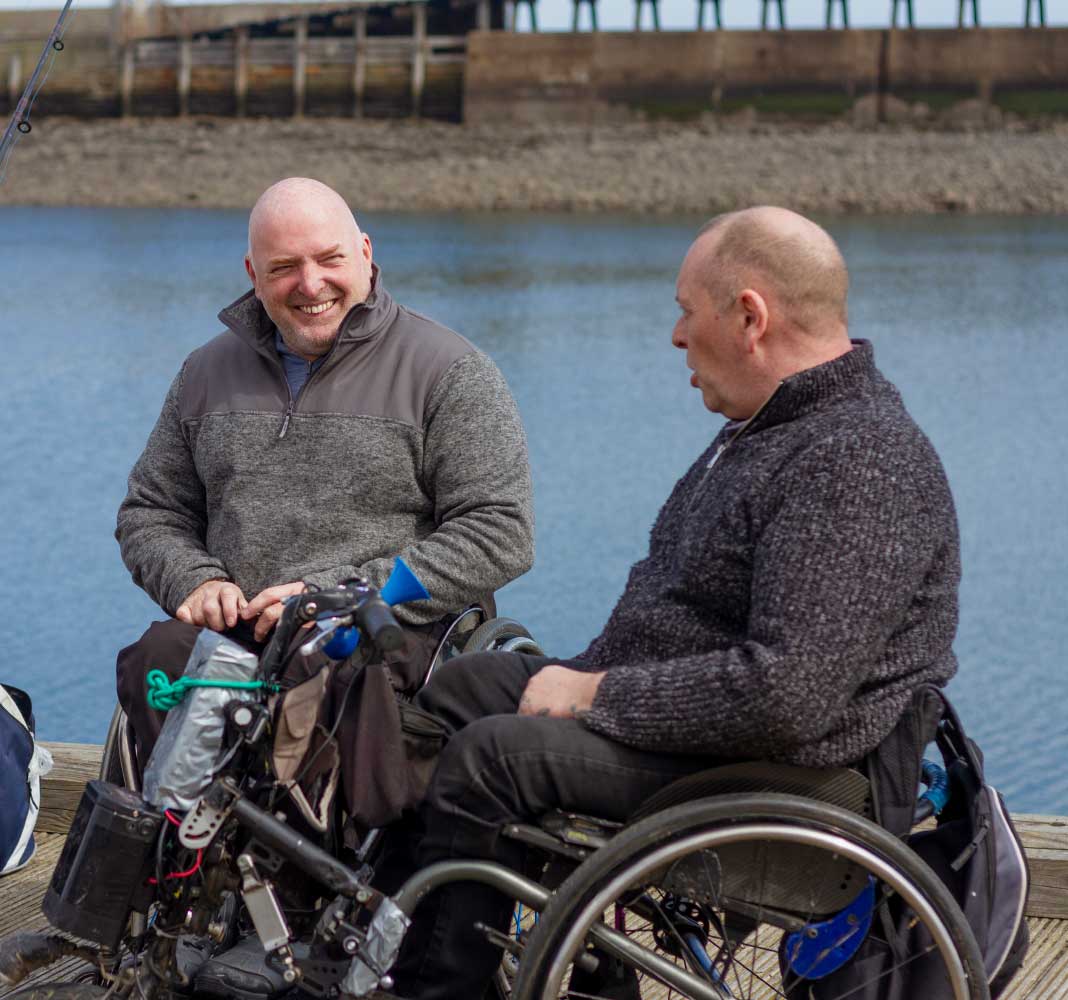by Martin Heng
Men’s Health Week is not some new fad. It originated in the USA, so its timing coincides with the US celebration of Father’s Day. With support from the Men’s Health Network, it was created by the US Congress and signed into law by President Clinton in 1994. It has since spread around the globe and is now celebrated internationally with its primary aim to heighten the awareness of preventable health problems – both physical and mental – and to encourage early detection and treatment of disease among men and boys.
Worldwide, male life expectancy at birth is lower than female life expectancy. In developed countries, the difference can be up to eight years but averages around five. In Australia, it’s currently 81.2 years for males compared to 85.3 years for females. Why is this? Part of the reason is biological: the female hormone oestrogen is protective of cardiovascular disease, while the male hormone testosterone is associated with a higher risk of cardiovascular disease.
But there are other factors at work. Testosterone has been linked to violence and risk-taking: men have been twice as likely to be victims of homicide as women for at least the last 20 years in Australia. Similarly, male smokers smoke more cigarettes than female smokers. And as we explored recently for Road Safety Week (add hyperlink), men are far more likely to be involved in road traffic accidents. Such verifiable facts contribute to a growing recognition that social factors are significant health determinants.
While it’s undoubtedly stereotypical, women are more likely to seek beauty, so they try to remain young and healthy for as long as possible. Therefore, women tend to take better care of their bodies and benefit more than their male counterparts from modern medical and social advances. On the other hand, men are more likely to seek strength and power, which leads them to more risky behaviour and to focus less on their well-being.

Some data shows men have less contact with doctors and the health care system than women. Men not only fail to get routine check-ups and take preventive care but also often ignore symptoms or delay seeking medical attention when sick or in pain. Men aged 20 to 40 are half as likely as women to go to the doctor with a problem. These poor health habits take a toll, beginning from adolescence and rising significantly as men reach retirement age. So why do we men do this? First, it’s simply denial: hoping something’s not an issue because we think whatever is going on is no big deal and will just go away, or symptoms are just part of getting older. Denial is particularly common when taking care of our mental health. You can convince yourself that it’s a case of mind over matter. A milder form of this is “delayed information seeking” when we just wait and see if it will go away on its own and put off seeking health information. Delaying receiving information from health professionals increases the likelihood of something minor becoming something significant.
There’s also what men feel that society expects of them – what’s known as the social construct of masculinity – which leads many men to worry that asking for help will be seen as weak. Being conditioned to project the traditionally masculine traits of strength, independence and self-reliance – which can be positive – becomes a problem when seeking professional help or discussing health issues with friends and loved ones. Again, mental health is particularly affected by this trait. Although it’s a generalisation, men are much less likely to talk about their inner life than women. They are much more likely to feel embarrassed about starting a conversation about health concerns, let alone mental health. This is a contributory factor to the fact that three times more men than women take their own lives.
In most countries around the world, men are four times more likely to sustain a spinal cord injury than women, constituting approximately 80% of people living with SCI, which is a shocking health outcome for men, and almost certainly speaks to the greater inclination to take risks. It also means that Men’s Health Week is particularly important for our community. While there’s a particular focus on regular check-ups to prevent prostate cancer in the general population, men living with SCI should be undertaking several other regular check-ups for bowel and bladder health. Maintaining good bowel and bladder health also means being self-aware and taking preventive and early action to prevent serious and potentially life-threatening health issues. See “Looking after your urinary health” and “Looking after your bowel health” for more information.
We also need to monitor ourselves and look after ourselves carefully in other areas. A sedentary lifestyle often leads to poor blood circulation and leg swelling (oedema) and can lead to blood clots and deep vein thrombosis. We’re also at risk of skin ulcers or pressure sores and have higher rates of obesity and type II diabetes. This is not the place to go into detail about specific preventive measures for all of these issues. Still, the general advice is the same as for the general population: lead a healthy lifestyle with regular physical exercise, regular sleep habits, a good diet, drink alcohol in moderation and avoid smoking.
There’s a particular emphasis on mental health during Men’s Health Week – the R U OK? campaign has taken off in recent years – and this too has particular significance for the SCI community, with estimates of depression among people living with SCI ranging from 24% to 45%, compared with 5% in the general population. People with SCI are two to six times more likely to take their own lives than the general population.
An academic paper on men’s adjustment to spinal cord injury examined how conformity to masculine gender norms can have positive and negative effects. Higher rates of depression were seen in men with SCI who adhered to male standards – particularly independence and self-reliance – probably because this denied them access to essential emotional (and functional) supports. Interestingly, this paper’s findings replicate those derived from studies of men who have prostate cancer – adherence to masculine norms has a significant bearing on adaptation to disease and chronic medical conditions. It also highlights the importance of returning to work after an accident and participating in community organisations as it is shown to reduce depression.
An essential aspect of mental health that’s even more difficult to broach – by both men with SCI and healthcare providers – is sexual health, which was flagged by the World Health Organization in 2000 as a fundamental right of all individuals. One study found that more than 80% of men felt that their spinal cord injury altered their sexual sense of self and that improvements in their sexual functioning would improve their quality of life. Another academic paper reviews this aspect of post-traumatic SCI, noting that the overwhelming majority of such injuries occur in young males under age 40. Given that these are men at the prime of their reproductive lives, sexuality and fertility are often identified as major concerns since most men experience severe impairments in their sexual health and reproductive functioning due to erectile and/or ejaculatory dysfunction and semen abnormalities. Again, men’s adherence to traditional masculine norms tends to affect adjustment to changes in sexual functioning following SCI.
While researchers present a range of potential solutions to address these concerns – including sex education, counselling, behavioural therapy, sex therapy, peer support and multidisciplinary involvement – what is it that we can do ourselves? The easiest and most effective solution to this issue is the same as for mental health and all other health issues: talk about it with family, friends and healthcare professionals. Talking about health issues helps normalise them, reassures us that we are not alone, and encourages ongoing discussion and discovery or sharing of solutions.
You can also educate yourself. Spinal Cord Injury BC has helpful information on topics relevant to sexuality for both men and women with spinal cord injuries, including relationships, information for partners, sexual self-image, bowel, bladder and mobility concerns, contraception, fertility, and parenting. The Spinal Cord Injury Research Evidence website hosts several expert sexual health and spinal cord injury videos. The Sexual Medicine Society of North America website includes sexual health concerns related to specific conditions, including spinal cord injuries in men. The Consortium for Spinal Cord Medicine is another good resource.
Thirty years ago, the difference in life expectancy between men and women in Australia was 6.2 years as opposed to the current 4.1 years, which means that men are taking better care of themselves. Is it a coincidence that this change occurred during the period when Men’s Health Week became an increasingly high-profile event?
Check out the hashtags #MensHealthWeek, #MensHealthMonth and #ShowUsYourBlue to find out what people are saying this year and what activities are running in your area.
